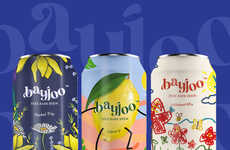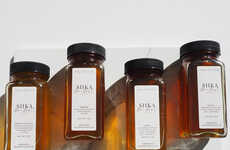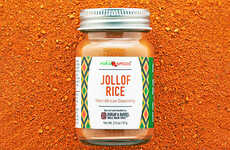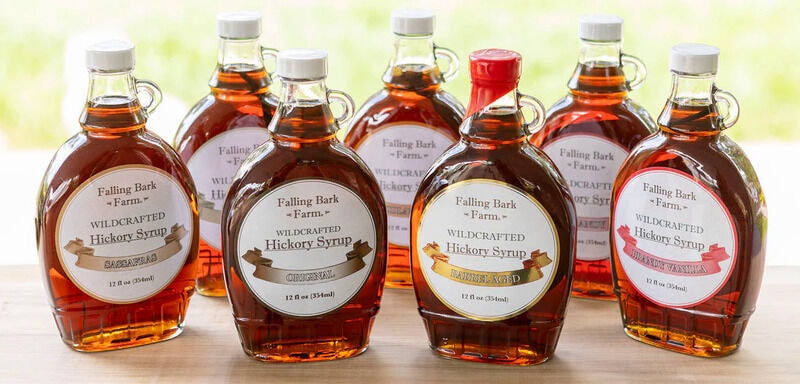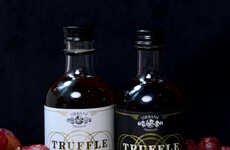
Falling Bark Farm Leverages Fallen Bark of the Shagbark Hickory Tree.
Grace Mahas — June 12, 2024 — Social Good
References: fallingbarkfarm & modernfarmer
In the vast world of agricultural products, maple syrup is a staple in American pantries, while hickory syrup remains relatively elusive. Enter Joyce and Travis Miller, retired professionals who have turned their Clarke County, Virginia, homestead into one of the world's few hickory syrup producers. Their venture, Falling Bark Farm, exemplifies sustainable agriculture and resourcefulness.
Unlike the more familiar maple syrup, which is derived from sap extracted by drilling into trees, hickory syrup utilizes the fallen bark of the shagbark hickory tree. This method is both environmentally friendly and sustainable, as it causes no harm to the trees. The Millers collect the bark, clean it meticulously, then toast and simmer it to extract its unique smoky flavor, combining it with turbinado sugar to create their syrup.
This niche agricultural product honors Native American traditions and caters to growing consumer interest in natural and artisanal foods. Moreover, Falling Bark Farm adds value to what would otherwise be a waste product in the timber industry. Once they have produced the syrup, the leftover bark is passed on to a local barbecue business for smoking foods, fostering a circular economy.
Image Credit: Falling Bark Farm
Unlike the more familiar maple syrup, which is derived from sap extracted by drilling into trees, hickory syrup utilizes the fallen bark of the shagbark hickory tree. This method is both environmentally friendly and sustainable, as it causes no harm to the trees. The Millers collect the bark, clean it meticulously, then toast and simmer it to extract its unique smoky flavor, combining it with turbinado sugar to create their syrup.
This niche agricultural product honors Native American traditions and caters to growing consumer interest in natural and artisanal foods. Moreover, Falling Bark Farm adds value to what would otherwise be a waste product in the timber industry. Once they have produced the syrup, the leftover bark is passed on to a local barbecue business for smoking foods, fostering a circular economy.
Image Credit: Falling Bark Farm
Trend Themes
1. Sustainable Agriculture - Falling Bark Farm's method of utilizing fallen bark of the shagbark hickory tree showcases an innovative approach to sustainable agriculture by preventing harm to trees and promoting environmental stewardship.
2. Artisanal Foods - The creation of hickory syrup at Falling Bark Farm reflects a growing consumer demand for unique and natural food products, emphasizing the value of artisanal craftsmanship.
3. Circular Economy - By passing leftover bark to local barbecue businesses, Falling Bark Farm exemplifies the principles of a circular economy, turning potential waste into valuable resources.
Industry Implications
1. Agriculture - The use of shagbark hickory tree bark in syrup production introduces a novel agricultural method that maximizes resource efficiency and sustainability.
2. Food and Beverage - The niche product of hickory syrup aligns with the industry's trend towards embracing natural, flavorful, and traditional ingredients in food and beverages.
3. Timber - By repurposing waste bark from the timber industry, Falling Bark Farm provides a disruptive innovation that adds economic value to what would otherwise be a discarded byproduct.
4.9
Score
Popularity
Activity
Freshness


